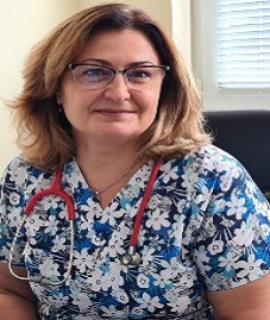Abstract:
Material and methods: We followed the evolution of neonatal jaundice in 423 full-term infants born in the Department of Neonatology of UMHAT Medica Ruse Ltd. for the period 2017-2020. We performed transcutaneous bilirubinometry daily from the first day until leaving the ward, as well as on the 14th and 28th postnatal day. In the prolonged forms, we continued the follow-up until the complete disappearance of jaundice, which was by the 90th postnatal day at most. The children were divided into two groups - Group A (232) exclusively breastfed and Group B (191) newborns fed with a standard formula for newborns. The treatment of neonatal jaundice is carried out only by phototherapy. We compared bilirubinemia levels and the rate of hyperbilirubinemia in the two groups.
Results: There is no significant difference in gender, gestational age and weight between groups. There was no significant difference in mean bilirubin levels from day one to day 28. No difference was found in the initial time of initiation of phototherapy and duration of hospital stay. In group A the hours of phototherapy (15.5 ± 9.6 hours) were significantly longer than in group B (13.0 ± 6.3 hours), (p = 0.025). For the whole observed period the share of newborns with hyperbilirubinemia in group A is higher than in group B, and on days 4, 5 and 14 this difference is significant. We report prolonged forms of neonatal jaundice in group A in 14.7% and in group B -12.9% as of day 28. In group A, the frequency of readmission, due to the need to treat neonatal jaundice, was significantly higher (p = 0.013).
Conclusion: In our study in breastfed infants, we reported a significant difference in the proportion of hyperbilirubinemia as well as in the duration of phototherapy. We observed neonates up to involution of neonatal jaundice, and in the prolonged forms the share of exclusively breastfed children is insignificantly higher.




